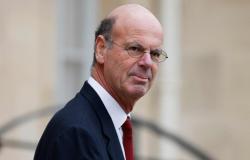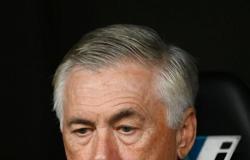Pierre Poilievre says he needs very strong voices from the regions of Quebec to protect the Quebec economy against the 25% customs tariffs that Washington intends to impose.
“I am not only going to protect large urban cities,” specifies the leader of the Conservative Party of Canada (PCC) in an interview with The Sun. We are going to tell Mr. Trump that the Americans need Canada. A strong Canada will ensure that Americans can be richer and stronger. We must not be divided!”
To achieve this, he believes that Canada must respond “dollar for dollar”. In his opinion, it is imperative to convince senators, members of Congress and Mr. Trump that greater free trade between the two countries will allow Canadians and Americans to be richer.
He courts Quebec
Although he is favored by the English-speaking provinces, Mr. Poilievre is however less popular with Quebecers. After Montreal, Dollard-des-Ormeaux and Trois-Rivières, he stopped in Rivière-du-Loup to share his ideas. “I believe that Quebecers like what they hear,” he believes.
Among his ideas, he plans to remove the goods and services tax (GST) on homes, which he says could save a young couple up to $50,000 on the purchase of a house. He also wants to reverse capital gains tax increases to help farmers, entrepreneurs, doctors and home builders. He also wants to limit bureaucracy and spending that he considers exorbitant in order to reduce the deficit. “These are Quebec priorities that I am the only one to offer.”
He discovered Premier Tech
The candidate for the post of Prime Minister of Canada took advantage of his visit to Rivière-du-Loup to visit the head office of the multinational Premier Tech, which he did not know at all, he admitted. “It’s impressive! It’s incredible to see such a company in the region.” He said he felt like he was in downtown Toronto or Montreal. “It’s huge, extremely advanced and cutting-edge!”
During his visit to the factory, Pierre Poilievre was able to familiarize himself with the TOMA robot. (Johanne Fournier/Special collaboration)
The Conservative MP for Montmagny-L’Islet-Kamouraska-Rivière-du-Loup added: “There are hundreds of companies like that in my riding, but not as big,” argued Bernard Généreux before his chef congratulates him for helping to build ties with Canadian entrepreneurs and investors. “It pays to be part of Canada,” said Mr. Poilievre. We don’t need the Bloc [québécois] who just wants to divide and break ties that work very well for Quebecers.”
-Pierre Poilievre said he hoped for more companies like Premier Tech in Canada. “With fewer taxes, less bureaucracy and much faster obtaining of permits, I will convince businessmen and women to invest in regions across Canada.”
Meeting of Premier Tech managers and employees
Upon his arrival at Premier Tech, Pierre Poilievre was welcomed by the company’s president and CEO, Jean Bélanger, as well as the vice-president of corporate development, Yves Goudreau. He was then taken to the factory, where he was able to see the robots and technological equipment it is full of.
Pierre Poilièvre answers a question from a Premier Tech employee regarding the development of liquefied natural gas. (Johanne Fournier/Special collaboration)
Flanked by his Quebec lieutenant Pierre Paul-Hus and the constituency MP, the leader of the PCC then met the employees. After a nearly 10-minute speech, he was open to answering workers’ questions.
“How can we overcome the debt by giving us more money and lowering taxes?” asked one of them. Aren’t we at risk of getting into even more debt?” The parliamentarian replied that it was possible to achieve this by cutting excessive spending. “We don’t have a problem with income. We have a bureaucracy which has added 120,000 civil servants over the past ten years. That’s an increase in the number of bureaucrats of 45%! Our population has not grown by 45%. So, we must reduce the number of bureaucrats through attrition.”
Furthermore, he believes that there are too many consultants in government. “We spend $21 billion on consultants! That means $1,400 per Canadian family in taxes for work that the public service should be doing.” He also promises to ax “the checks we give to large companies and multinationals, with very complicated programs that promote those that have lobbyists.” He plans, if he is elected as prime minister, to “cut foreign aid which is of no use”.
In short, he wants to reduce the cost of government. “We have almost doubled the federal government’s budget in ten years, all with the support of the Bloc which voted for almost all inflationary, bureaucratic and centralizing expenditures of $500 billion.”






